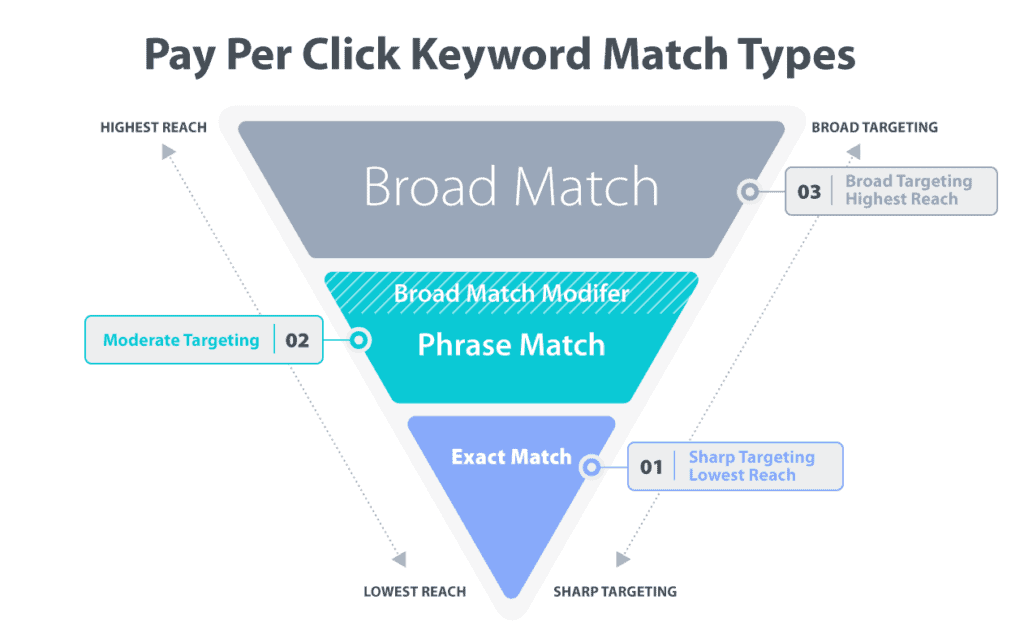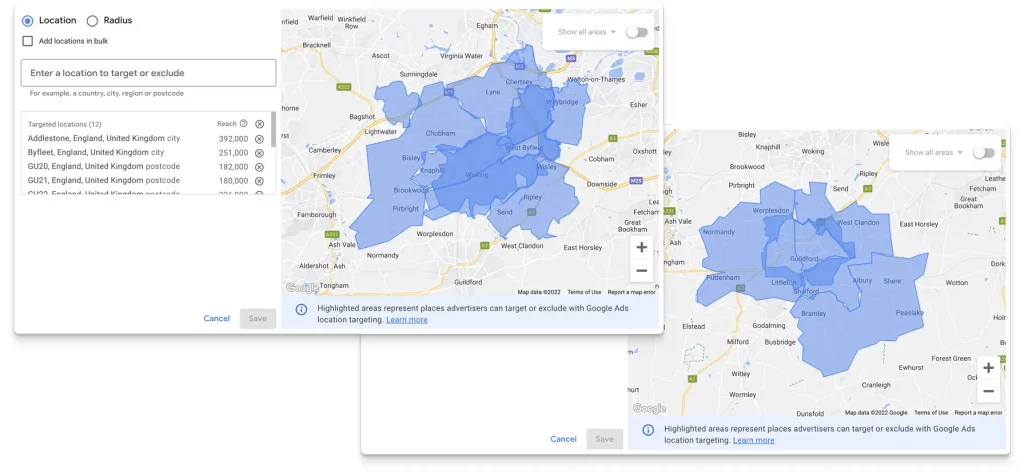
Let’s admit it. Sometimes, PPC Ads are not working for businesses. Even the most seasoned marketers and advertising experts find it challenging to get the right ROI on their PPC Ads campaign. However, this does not mean that you should give up on your Ads campaign. It simply means that you need to make some tweaks to your current strategy and rework your approach. There seems to be a whole host of reasons that a business doesn’t want to venture into running ads again, and normally fall into one or more of the reasons below.
- PPC ads just don’t work for my business
- Setting up PPC ads is so overwhelming; we were not sure if it was working
- Im not sure what to do when it comes to adwords PPC management
- PPC ads cost way too much money for the return
- All the leads I get from PPC ads are a waste of time
- People are clicking on my add but they never contact us
- Each conversion is costing me a small fortune
- I can’t tell any enquires are coming from our adverts
Here are some common pitfalls that you should avoid if you want your PPC Ads campaign to succeed. However, before outlining the pitfalls, you should be super clear what PPC advertising is
What is PPC advertising?
PPC advertising is a form of digital advertising that allows businesses to target potential customers based on their online behaviour. PPC ads are typically displayed on Google Search, Bing, and Yahoo search engine results pages (SERPs). By paying for a targeted ad, businesses can reach those who have recently searched for relevant terms or those who have shown an interest in similar products or services.
PPC advertising can be a highly effective way to attract new customers. In addition, PPC ads can help businesses build brand awareness and strengthen customer relationships.
To get started with PPC advertising, businesses should first research their competitors’ ad campaigns and create an ad campaign strategy based on this information. Next, they should choose an ad platform that best matches their budget and target audience. Finally, they should create an ad that clearly communicates their business message and includes clear pricing options.
Don’t just jump in
Work out who you want to attract to your product or service and exactly what you want them to do after they have clicked on your advert. The idea is NOT to get the most clicks… it’s to get the least clicks, but specifically from people who fit your exact target audience.
I would rather get 25 clicks a month, but 20 of those people are exactly who I am trying to sell to than 250 clicks and only 25 are my exact target audience.
Also think about how many leads you need or can cope with and work the numbers back. Don’t forget PPC advertising should be in addition to other methods of advertising or lead generation. It should work alongside a strategically crafted business advertising or lead generation plan.
Anyway, let’s have a look at some of the reasons your PPC ads may not be working for you.
- ROI Doesn’t Align with Profits
- Not Understanding Match Types
- Trying to second guess the Search
- Landing Pages Do Not Convert
- Using a generic landing page
- Not using negative keywords
- Not using location targeting
- Not Optimising your Account

ROI doesn’t align with profits
ROI objectives are not always achievable and return on investment is not always measurable.
You can measure all your sales and leads with PPC Ads, but this may also lead to heightened measurability and lower measurable results.
You may have the wrong notion about your return on investment from PPC Ads and gauging account performance solely on spend is not really efficient
For example, when selling your services (property lettings management or property valuations) online, you are effectively using pay-per-click advertising to acquire leads.
You may have decided you need a 4 to 1 return on your advertising spend, and PPC Ads produces a 2 to 1 return.
Does this mean you should abandon PPC Ads?
Answer: Maybe, but it depends.
Beyond looking at the obvious metrics to judge an advertising campaign, you must comprehend what to look for.
For example:
- Is the rate of return low because your conversion rate could be higher?
- Is the immediate return lower, but you should be accounting for a higher lifetime customer value?
- It could be that the total value is actually more than the one initial purchase triggered by a PPC Ads campaign.
You must look at the entire customer journey in order to calculate your ROI effectively.
That goes for both what they do as your lifetime customer and also where you can make improvements in the PPC process to increase conversion and decrease costs.

Not understanding match types
PPC match types are an important part of your account setup. PPC match types allow you to control how your ads appear in search results.
With Google PPC there are four match types:
- Broad Match
- Broad Match Modified (soon to be retired from Google)
- Exact Match
- Phrase Match
With broad match, your ad is shown when a user’s search query includes any word from your keyword phrase, in any order, as well as any related words. This is the default match type and reaches the widest audience.
As an example, suppose you advertise with the keyword “Flat to rent”, your advert could show for the following searches “Flat tyre”, “Car rental”, “house to rent” etc
Broad match keywords are a great way to drive lots of clicks, but you need to keep a close eye on your search query reports to ensure you are not paying for irrelevant traffic that doesn’t convert.
You can set up negative keywords to help prevent your ad from showing on searches that aren’t related to your business [See Not using negative keywords below]
While phrase match offers some of the broad match’s flexibility, it provides a higher level of control. Your ad will only appear if the user queries your key phrase using your keywords in the same order you enter them, but there may be other words preceding or following them.
A few years ago, Google expanded phrase match to include queries containing synonyms, plurals, or close variants of your keyword.
So for our example “Flat to rent” searches could include “Flats to rent”, “2 bed Flat to rent”, “Flat to rent in Oxford”.
When using Exact match type, in previous years, users would only see your ad when they typed your exact keyword phrase by itself. However, like Phrase match Google expanded Exact match to include queries containing synonyms, plurals, or close variants of your keyword.
Each Match type have their good and bad points. With the broad matching, you’ll end up paying for some wasted clicks and will need to add negative keywords pretty frequently.
With phrase and exact match, you will end up paying a higher CPC, so you will need to check regularly and make sure you are getting the ROI you are expecting.
Typically, the healthiest accounts are the ones that utilise a good mix of match types. Although many brands will bid on exact match out of principle because they are the most relevant terms. However, if it’s costing you four times as much as broad, you will need to make sure your conversion rate is converting at a multiple rate to your broad match traffic.
Your landing page is too generic or is not converting
If you are sending someone to your website from PPC Ads, your goal for what they do when they land there should be obvious. In fact, you should never design or build a landing page without being 1005 clear on what your goal is. If you are looking to make a sale, or just getting people to register their interest in your service then the whole landing page should be geared around doing that.
Some landing pages we see have way too much information on the page, hard to find call to actions, or not highlighting the information the searcher was looking for in the first place. All these factors can all contribute to users leaving without converting.
I can’t stress this enough… you must focus on the keywords you are buying on the searcher’s intent (i.e., what they are looking for).
Make sure your landing pages are clear in their intent, and your product or service offering is something the searcher wants.
Once you have built your landing page, its a good idea to critique it in comparison to your competitors – would you still stay on your landing page, or does one of your competitors have more going for it? You must be brutally honest with yourself when you do this, as its for your own good.
Does your landing page:
- Fully explain what your offer is in the first three seconds.
- Match with what people are searching for?
- Clearly and easily signpost the visitor as to what the next steps are?
If you follow these basics, you should be on your way to converting your PPC Advert visitors into your next customers.
Not using negative keywords
One of the mistakes we see often is where a campaign has been set up, and everything looks good…except there are no negative keywords set up.
Negative keywords, allow you to focus on only the keywords that matter to your customers and exclude ones that don’t. Better targeting can put your ad in front of the right audience and increase your return on investment (ROI).
Choosing exactly what not to target is one of the keys to a highly targeted campaign. Choose negative keywords that are similar to your keywords but may be used to attract customers seeking other products or services.
For example, as a letting agent based in Bristol looking to attract new landlords, you may well use the search term “Letting agents” or “property management”, however you may want to avoid people looking for “jobs”, “career” or “qualifications” (i.e., someone searching for “Letting agents jobs”).
Filtering out unwanted traffic by adding negative keywords to your campaigns helps you reach the most appropriate prospects while lowering your costs.
There are different types of Negative keywords you should be aware of.
- Negative broad match
- Negative phrase match
- Negative exact match
You can view a full in-depth description of how these work on Google’s write up about Negative Keywords.
The benefits of using Negative keywords are:
- Your PPC advert will not be shown for keyword phrases that are not relevant to your target audience.
- There will be fewer click throughs that do not convert.
- Your overall clickthrough rate (CTR) will more than likely be higher, i.e., more people who see your ad will click on it.
- A higher clickthrough rate (CTR) will result in your ad being positioned higher on the page without having to pay a higher Cost per Click (CPC).
- You will save money by reducing your CPC.
And taking all of these into account your campaign’s Return on Investment (ROI) should increase.

Not using location targeting
The benefit of most property management companies or letting agents is that they tend to be very location specific, generally covering cities, towns, and villages and possibly counties.
So, from a point of view when trying to target vendors and landlords to add to your housing stock, you can probably assume that most people looking for services fit one of the following scenarios
- They are an individual, currently living in your area, with a property in your area that they are looking to either sell or rent out
- They are an individual, currently outside of your area, with a property in your area that they are looking to either sell or rent out
You can choose where your ads appear using Location Targeting including countries, areas within a country, a radius around a location, or location groups, which can include places of interest, your business locations, or tiered demographics.
What we have found useful for advertising property, is the ability to bulk target multiple locations in one campaign including postcode areas as well as towns/locations.
For more information on location targeting see Google’s answer on adding multiple location targets.

Not optimising your account
There are thousands of ways to reduce costs and improve Google Ads campaigns such as using bidding strategies or general advertising strategies. Unfortunately, it’s often the case that most people are not even aware of some of the available options to help with optimising, or most likely that looking at the available options are causing complete overwhelm, and therefore it never goes any further.
Often-neglected areas include things like:
- Bid modifiers by device.
- Bid modifiers by time or day.
- Bid modifiers by geographical performance.
- Regular review of the search query report.
- Addition of negative keywords.
- Testing new bid strategies.
- Ongoing ad copy testing.
Wordstream wrote a great article on structuring a PPC campaign.
Overview
Just because PPC advertising has not worked for you, does not mean PPC advertising does not work. There could be something quite small with how your PPC has been set up or implemented that can easily be fixed.
Go through each stage listed above and with any luck you may recognise an area of your PPC that you are falling down on and be able to rectify it yourself.
However, if you find it all a little overwhelming, or just don’t have the time, but would still like to explore how PPC advertising can help your business, then give us a call about our SEO and PPC packages and Adwords PPC management services and let’s see if we can help you.
Book a No-Obligation 30 minutes call with our web design experts
Our 30 minute “getting-to-know-you” phone call is designed to see if your project is something we are able to help with. Be prepared to discuss your business fundamentals, your hopes & expectations of your project and your current business challenges. Schedule a call now.




